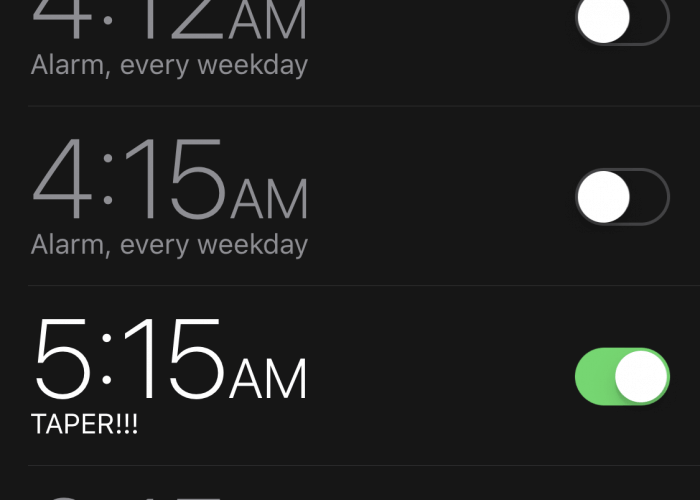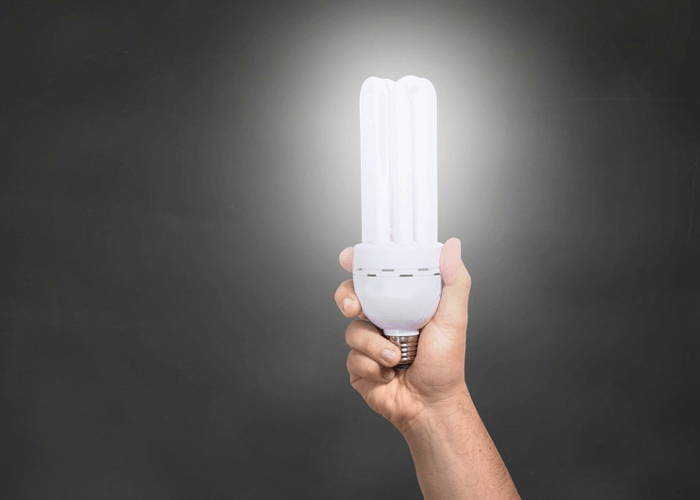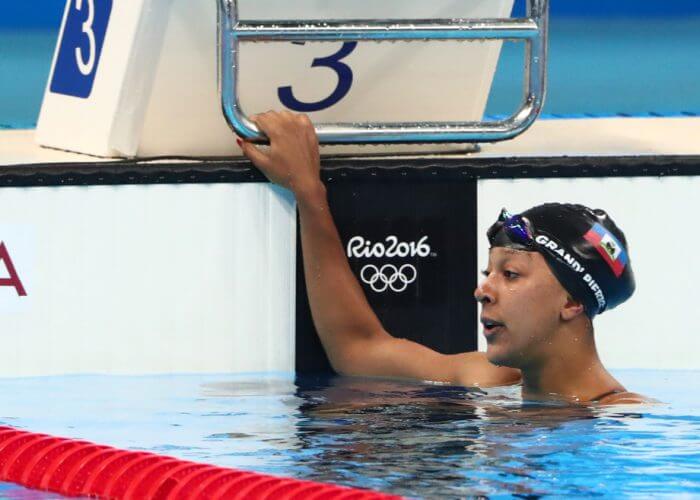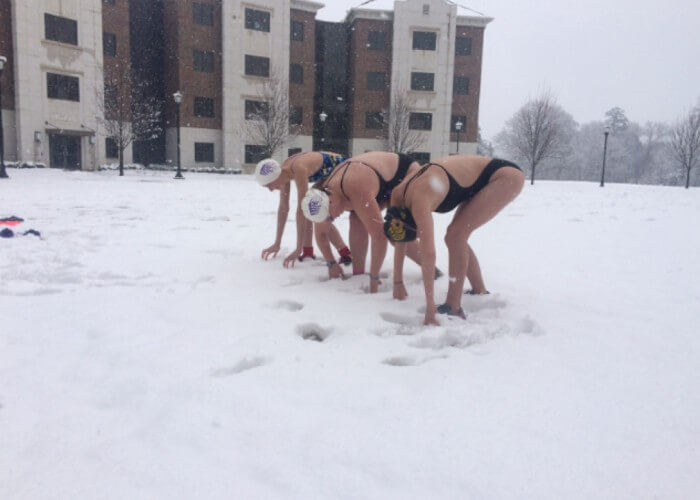9 Simple Steps to Help You Wake Up More Easily for Morning Practice

By Tucker Rivera, Swimming World College Intern.
The alarm goes off – you ignore it. Your window is open, and you can’t even hear crickets. Your heart has sunk, and in all honesty, you’re very grumpy. Of course, nothing feels better than waking up before the sun rises; nothing feels better than jumping into 78 degree water when it’s below freezing outside, nor is anything more enjoyable than driving with loud music so that you can stay awake at the wheel. Morning practice.
This is nothing new to you, but for some reason, you just can’t get up. Today isn’t your day, and you’d rather do anything other than swim. Rather than resigning yourself to a day of misery, here is some good news. You can attempt to make those mornings a little bit easier for you – swimmers and taxi-parents alike. Here are nine of the simplest ways to have a better morning before morning practice.
Step 1: Have a Bed Time
Arguably the most important segment of this article, committing to a bed time is the most significant factor in determining how easily you might wake up. REM cycles regulate when your body is most likely to wake up fully rested. The cycles range from roughly an hour to an hour and a half, meaning that you should schedule your nights so that you’re within shooting range of six, seven and a half, or nine hours of sleep each night. In doing so, you might be able to assure that your body is more biologically fit to wake up feeling rested every morning. Taking this into account before morning practices will drastically improve your alertness and ability to perform (and feel) well in the water.
Step 2: Set Two Alarms

Photo Courtesy: Makena Markert
While having a regimented sleep schedule is useful, it is often hard to implement during the school year. Thus, setting two alarms is probably the easiest first step towards a smoother wake-up. While many athletes elect to set one alarm and “snooze” until the time is right, that’s an extremely dangerous way to go about your morning routine – the best way to miss practice is to sleep through your alarms. In setting two, you not only lower the likelihood that you don’t hear an alarm but also raise the probability that you actually get out of bed.
Step 3: Put your Phone/Alarm Clock Across the Room
That’s right, get your phone as far away from your bed as possible before going to sleep. Not only will this assure that you aren’t on your phone before you fall asleep, but it’ll also force you to get out of bed in order to turn it off. Once you’re up and moving, it’ll be much easier to convince yourself to stay up and moving.
Step 4: Turn on the Lights

Photo Courtesy: Max Pixel
Whether it’s your ceiling light or your desk lamp, turning on a light alerts your brain to stop creating melatonin, the hormone your body produces to regulate sleep and wakefulness. In doing so, your body naturally begins to start paying an extremely high level of attention to what’s happening around you. This can trick your body (briefly) into a small fight-or-flight response, making your actions more purposeful in the initial moments of the morning.
Step 5: Get a Wake-up Buddy

Photo Courtesy: Rob Schumacher-USA TODAY Sports
Ask your parents, your roommates, your teammates or anyone to wake up at the same time as you do. Holding yourself accountable is difficult enough when you’re fully rested, much less when you’ve been thriving off of six hours of sleep for the past two weeks. Almost all tasks outside of the pool are easier to complete when you’re working within a team. Having someone who can send you a text, knock on your door, or turn on your light removes some of the inherent introversion that occurs in our largely individualized sport. If others are willing to put in an effort towards your success, why shouldn’t you?
Step 6: Splash some Water in Your Face

Photo Courtesy: Rob Schumacher-USA TODAY Sports
A favorite technique for Haitian Olympian Naomy Grand’Pierre is to take step number two to the extreme. Not only does she get her feet on the ground, but she also takes her feet to the bathroom and splashes cold water in her face. This is a simple way to trick your body into think that it’s ready to go. Grand’Pierre claims that getting “water in your eyes” is the most effective way to jolt yourself awake before you make your way to practice.
Step 7: Live Somewhere Cold

Photo Courtesy: Emily Grigsby
This is completely arbitrary, but something about driving on icy roads with frozen nostril hairs and sub-zero temperatures seems to get people going. It also gives you an excuse to drink coffee at five in the morning (see step nine).
Step 8: Find someone to drive you to practice
Hi, Mom!
Step 9: Caffeine

Photo Courtesy:wikimedia.org
While caffeine isn’t truly a necessity for success, it can surely be used as a wake-up tool. That being said, caffeine might be an even better fit for the individuals who don’t have the luxury of working out every morning (swim parents). As a grown adult with responsibilities and taxes and the like, chances are you’re already getting plenty of sleep; that just means that you should have no problem taxiing your children across town every morning, right? You get so much sleep that you get up at 2:00 a.m. just for fun sometimes! Grab a soda, coffee or energy drink, and you’ll be ready to go.
A Sport Like No Other
Don’t be mistaken: there will be moments where you’re frustrated. Nobody likes getting up early to work out. However, there is something to be said about people who are willing to. Take this advice or don’t; that’s completely reasonable. But if you’re consistently struggling to wake up, angry that you’re even awake at such an ungodly hour, or worried that you could be doing better, these are among the easiest ways to alleviate those stresses.
Athletes are a diverse bunch; however, few groups of athletes are regularly required to dedicate themselves to early-morning practices at the same level as swimmers. Morning training is an avant-garde event in the rest of the athletic world. In order to attend to our uniqueness, we’ll have to work together to find ways to normalize the struggles that we might be going through. Brutal morning training is essential to the development of elite athletes. Regardless of the methods to your madness, it is clear that the simplest ways to learn your tendencies are to practice, to listen to and learn from your peers, and to commit yourself to the consistency that our sport demands.
All commentaries are the opinion of the author and do not necessarily reflect the views of Swimming World Magazine nor its staff.




Seems that every swimmer and coach have bought into morning practices as a “proven fact” to be the best you can be in swimming. What if it was NOT a “proven fact?” What if it is because, like stroke technique, the world champs do it, so it most be necessary.
None of the swimmers I coached in Minnesota did morning practices and they were All-Americans, state champions, and state record holders. When Joel Shinofield coached at Washington & Lee, his teams were Top 10 in the country and they did NOT do morning practices. Yeah, you can argue that they would have been even better if they did morning practices, but…would they?
More sleep has proven to improve mental and physical performance. Maybe sleeping in would be better.
And, think about this. How much of that morning practice do you actually swim hard? If it is less than 1500-2000 yards, you might/would be better off sprinting warm-up in the afternoon. After all, it not the volume you do, it is the volume of high intensity swimming coupled with the best possible technique that determines how fast you will ultimately be. If you came to practice alert – physically and mentally – you might just train better.
So, I challenge the coaches out there to step out of the tradition. Have your swimmers do one practice a day. Make it count though. Ask the swimmers to push themselves to their limit and past.
I remember reading a book written by Sam Freas – a successful coach. I may paraphrase this incorrectly, but I swear he wrote that 3,000 yard practices were all that was needed – if the swimmer put 100% effort into every yard. I believe him.
So, give this a try. What have you got to lose? Sleep? I don’t think so….